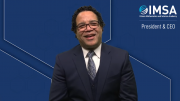Although 1.17 million Illinois school children had the option to go in-person for school in the 2020-2021 school year, many other schools still only offered remote learning. In January, however, many public schools started to reopen for the second semester.
In response, the Illinois Federation of Teachers called for a case tracker to be made. Although the tracker includes a mapping tool for district-level information and school-related outbreaks — all of which are confirmed by the Illinois Department of Public Health — the teachers union is bringing up the difficulty of finding and tracking every COVID-19 case in every school district across all of Illinois.
The safety of students is a very obvious and important priority for the school districts, but these districts also have to consider their teachers and staff, and how the reopening of schools will affect the students and their families.
The IFT is rightfully upset at the Illinois Department of Public Health and the Illinois State Board of Education for allowing the schools to reopen. The IFT and the Chicago Teachers Union both encouraged their members to take action against the reopening plans. However, there are labor laws put in place that make taking action difficult. According to these labor laws, if there is a collective bargaining agreement in place, it’s illegal for public school teachers and staff to strike.
Many Chicago public school teachers are calling for the members of their unions to not report to work — which is technically not a strike. However, a failure to report to work for an extended amount of time could be considered a strike by the Illinois Educational Labor Relations Board. By the time the board is brought into the issue, many teachers could have already started their “strike,” and many could lose their jobs or go to jail because of it. If the board is brought into it and the failure to report to work is deemed an actual and legal strike, teachers could suffer in other ways. Although they won’t lose their jobs, depending on the school district, their pay could be docked.
The labor board has also already twice denied the request by the Chicago Teachers Union to cancel the opening of Chicago schools in January, meaning that other unions looking to strike for the cancellation of the schools reopening probably have a poor chance of success. The schools should stay closed to protect the teachers and staff, whether it be from COVID-19 or from being fired and sent to jail for requesting safe working conditions.
There’s also the matter of the families of the children that will be going to school. Many middle and upper class parents are claiming “their children are suffering from social isolation and academic regression [the parents] believe pose a greater danger than the virus itself.”
“Some of these parents believe kids don’t get very sick, and even if their kids get COVID, it would just be the sniffles,” Dr. Tina Tan, professor of pediatrics at Northwestern University Feinberg School of Medicine, said. “But the opposite is true, and a certain subset of children can become very ill with long-term consequences.”
Low income families — and consequently quite a few racially diverse communities — are worried about in-person classes due to an increase of potential spread of COVID-19. These communities are disproportionately affected by the pandemic and are rightfully worried about what will happen if the schools open up. Low income families could also find it difficult or impossible to social distance when a member of the family is sick with COVID because of modest homes that are shared by numerous relatives. “When you have a multi-generational family living under the same roof in a two-bedroom apartment, how do you social distance when someone is sick?” Tan said. These low income families are also more likely to get COVID due to being essential workers like grocery workers, fast food workers, nurses, waiters, or other frontline workers.
The schools should be taking into consideration the types of families that attend their school. Do they have families that can pay for medical bills if somebody gets sick? Or do they have families that have more than one essential worker in the family, and now students back in the public school in person? Although schools have repeatedly stated how they are going to keep their students safe, they have to start considering how their staff feels, how their staff is going to react, and the economic situation of the families that attend the schools.






Be the first to comment on "Illinois Public Schools Reopening"